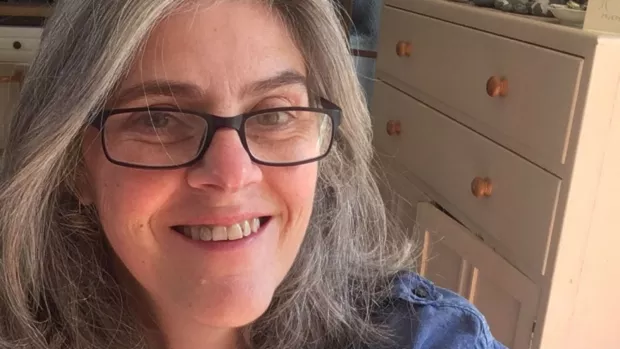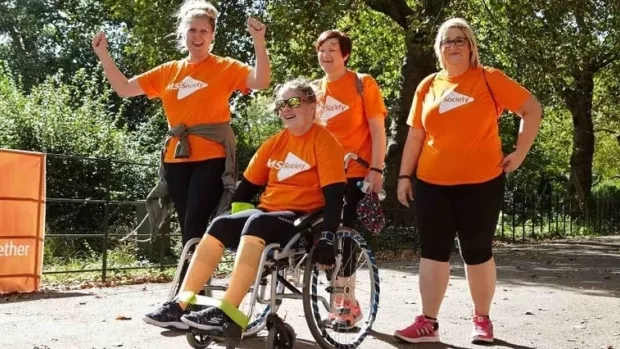
Stress and MS: surfing not swimming
Subira shares her diagnosis story, and how managing stress has made a huge difference to her health and wellbeing.
On the 23 February 2018, having gone to bed with the flu, I woke up with no feeling below my hips.
When you can't ignore the symptoms
I was depressed, still grieving my mum’s death. I didn’t admit how badly I was affected. In the moments I couldn’t feel my feet I relied on muscle memory. That was until the physical activity rendered me temporarily immobile with exhaustion.
By early March I had lost vision in my right eye. With a flight booked, I went to Moorfield’s Eye Hospital to find out if I was safe to fly. It was optic neuritis and so the MS investigation began.
An answer, with more questions
A year of what my consultant described as “explosive episodes” of sporadic immobility and blindness lead to a diagnosis of highly active relapsing MS.
I sat in front of my consultant dumbfounded. I went to the gym six times a week, ate mostly plant-based food, I had a good job. I meditated religiously, and went on holiday regularly.
I asked him what I’d done wrong? He said “nothing”.
Recognising relapse patterns
Then I remembered a conversation I'd had with my university econometrics lecturer during my final year in 2015. My mum was in a coma, and as I walked into the lab session, he asked, “Subira, how are you managing?” I replied, “I’m not, but I am coping”.
Remembering that conversation helped me understand that my MS relapses were directly triggered by stressful events.
I was great at coping with stress and being resilient. I wrote a first-class socio-econometric dissertation in 48 hours when my mum was in a coma, and started my first investment job four days after her funeral.
However, coping with stress is knowing how to swim, and managing stress is knowing how to surf. And life is an ocean not a swimming pool. Working whilst experiencing such high levels of stress were triggering the MS relapses. At one point it almost killed me.
Making changes
In 2019 in a bid to improve my health, I resigned from the investment industry and retrained as a certified holistic health practitioner and life coach.
I wanted to better understand the stress triggers which were causing me to relapse. It would enable me to develop effective methods to stop them.
I created a framework that allows me to live a stress-mitigating lifestyle. This has freed me of debilitating symptoms for almost two years without medical intervention.
Thriving on a new path
During this time, I've been able to pivot my career through the pandemic and support other talented professionals create their own burnout-free lifestyles.
I still have MS, and I will be starting treatment for it for later this year. And at times I do experience anxiety about the previous episodes which affected my independence. However, I no longer have to live with the physically debilitating symptoms I once had.




